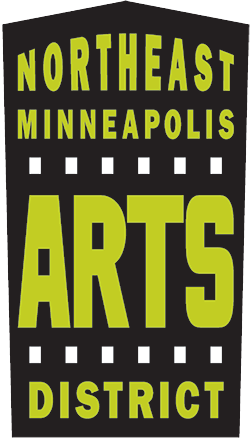In a striking new body of work titled Two Degrees Warmer, Brooke Bartholomew is investigating the confluence of environmentalism and feminism.
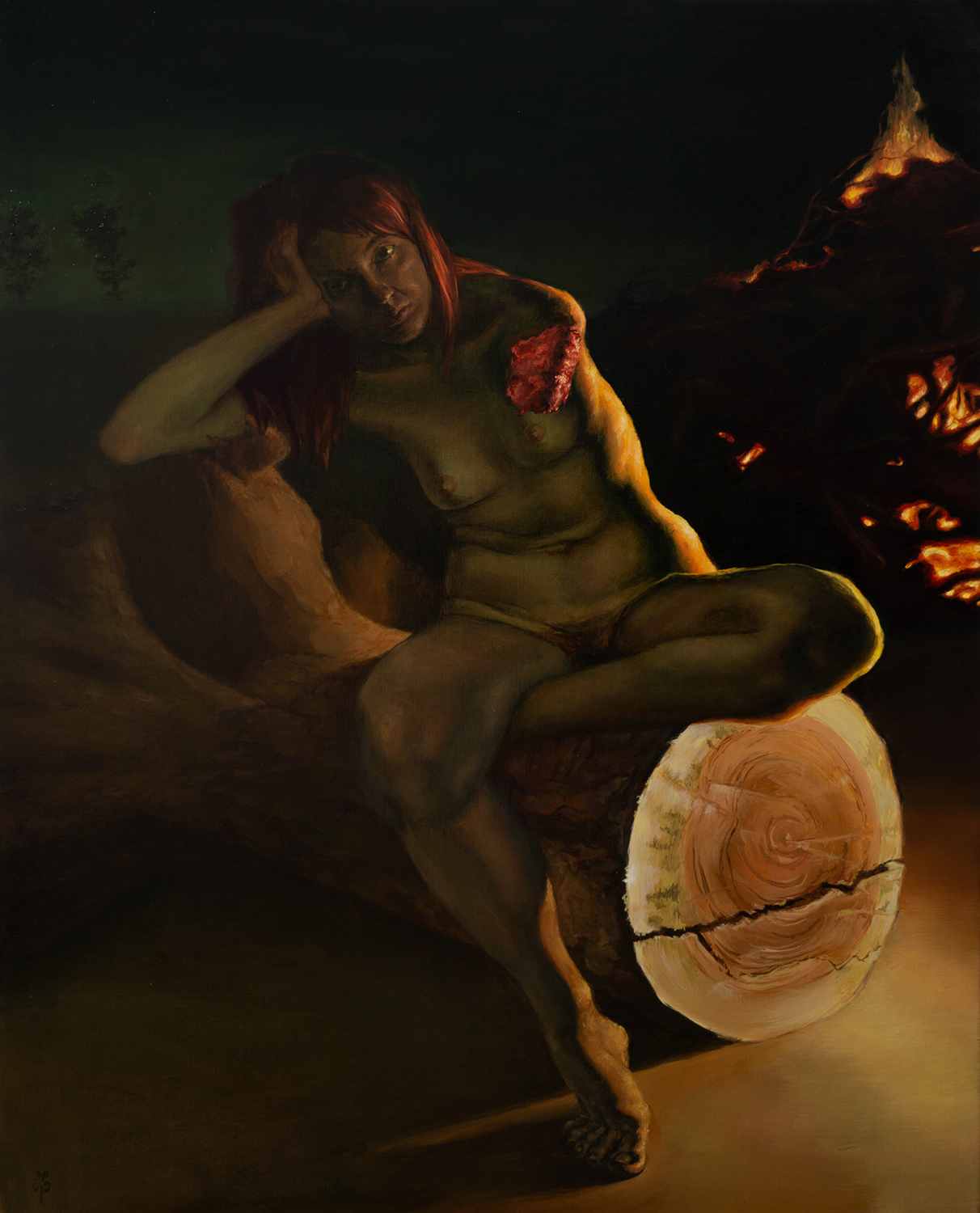
The series, which currently fills an entire wall of Bartholomew’s studio in Holland Arts West, is a study of the causes and effects of climate change, as told through the bodies of women. In each oil painting, focused on a distinct impact of human industry, the figure of a woman is situated in a distressed natural landscape; the damages and degradation of the surrounding environment are reflected as wounds and disfigurement on the women’s bodies.
Bartholomew is not shy of the grisly reality of the story she is telling. In one scene, a woman sits wearily atop a felled tree, as timber burns in the background; all that remains of her left arm is a smoldering stump. Bartholomew created this painting, “Hack Job,” in response to witnessing deforestation in Arkansas. “They took bulldozers to the trees, shoved them all into a pile, and when night hit, they lit them on fire.” The tactics, a cost-saving measure for developers, compounded the harm of deforestation with added emissions and waste. The woman in the painting looks pointedly back at the viewer. “I wanted to talk about the full scope of what deforestation can look like,” said Bartholomew, “and to bring it home a little bit that this isn’t just happening in the Amazon or in other countries. When no one is looking, it’s happening right here.”
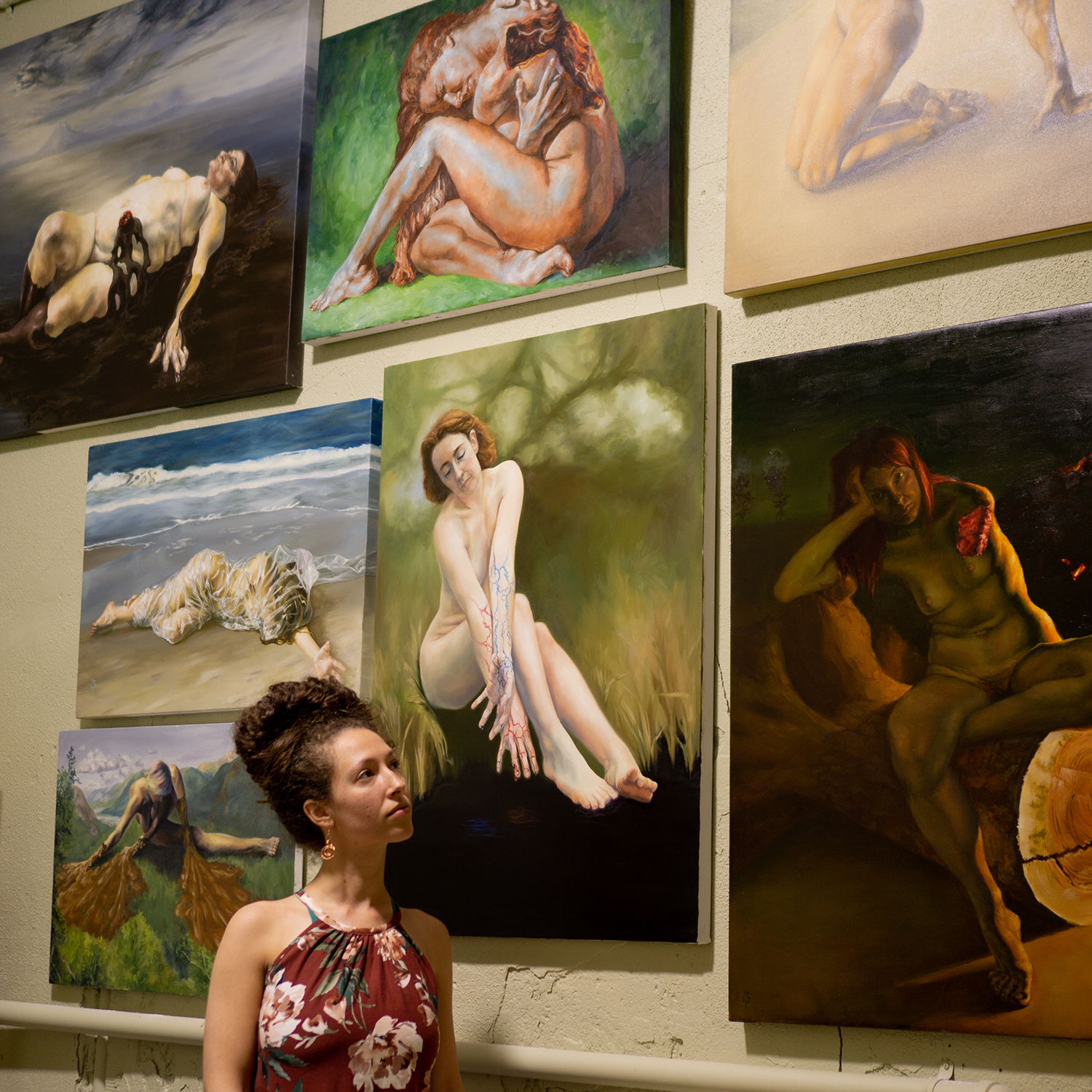
In another painting, “Petrochemical Marvel,” a woman’s body appears on a beach as if washed up from the ocean behind her; she is almost fully encased in a sheet of plastic, embodying the way earth’s oceans and waterways are increasingly drowning in plastic waste. The title calls attention to the fact that plastic, while a marvel of material science, is a petrochemical that produces emissions at every stage of its life cycle.
Bartholomew thoroughly researches the environmental causes and effects she depicts, and she also draws upon a decade of experience as a CVICU nurse to translate those impacts onto her figures in the form of medical injuries. “Lease Sale 258” depicts a woman with oil spilling from an inflamed colostomy. “A colostomy is a surgical opening to the bowels,” she explained, “which I felt was analogous to a rig pulling oil from the bowels of the earth.” In “Particulate Matter,” Bartholomew symbolized the health impact of air pollution by depicting a woman with a tracheostomy, an incision used to relieve difficulty breathing.
Bartholomew said she has considered herself an environmentalist for a long time, but she didn’t always know how to share a message about climate change through her art. She studied figure drawing under Mark Greenwalt in Houston before later training in the techniques of classical figure painting at the Academy of Art University in San Francisco. She saw other environmentalist artists working with sculptural earth forms or photography, “but I really only wanted to paint the figure.”
In Two Degrees Warmer, it all came together. Bartholomew’s use of the figure—and specifically the female figure—is many-layered: the woman in each painting is a personification of the earth as a victim, but also a visualization of the outsized impact of climate change on women. Because women make up the majority of the world’s poor and the world’s agricultural workers, Bartholomew said, “women experience the brunt of climate change impacts globally.” Bartholomew cited examples ranging from women in areas hit by drought needing to walk further for water to instances of sexual and physical abuse against women increasing in the aftermath of natural disasters.
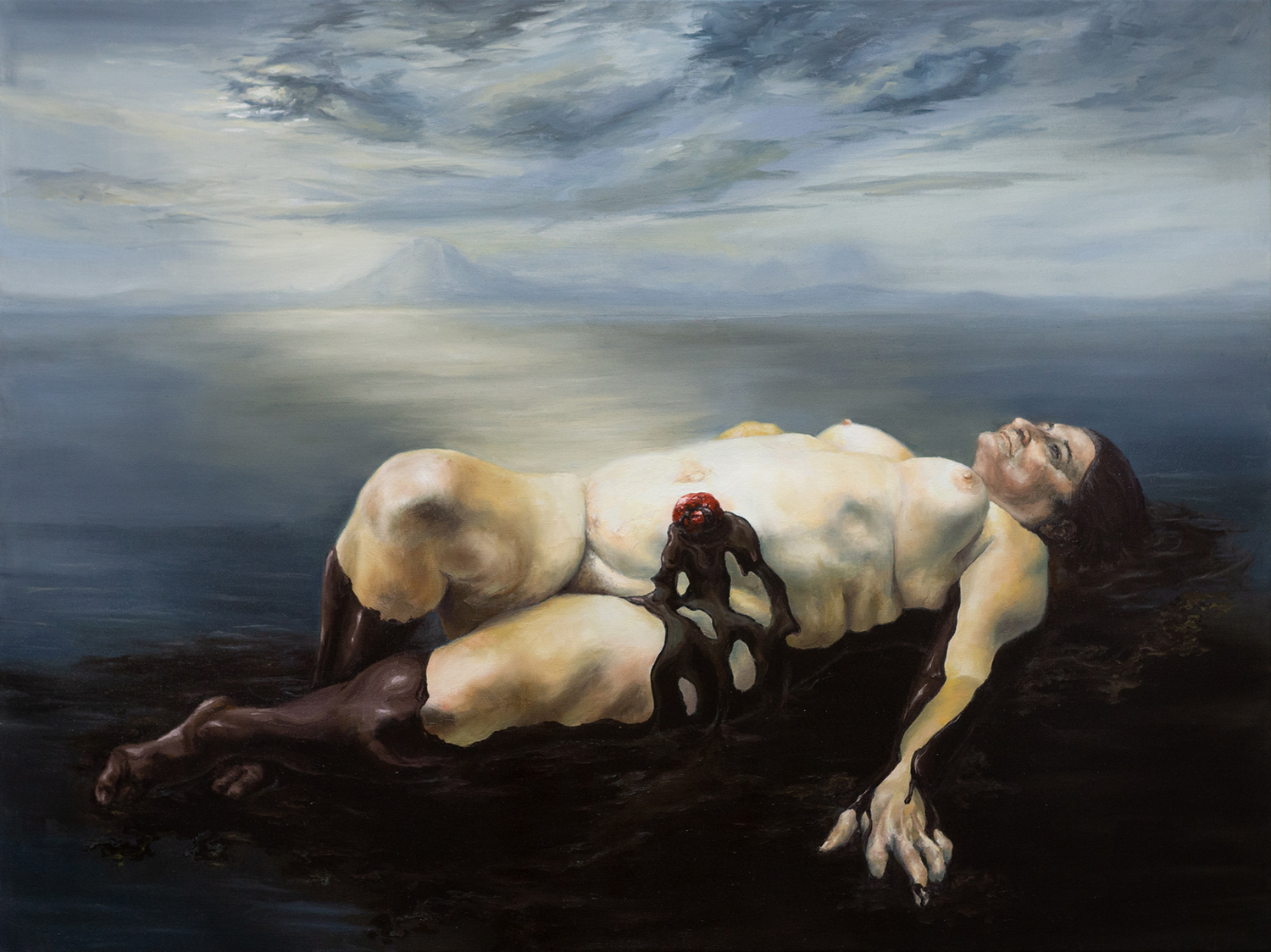
On the other end of this, Bartholomew explained, “women don’t have as much of a voice in power structures, whether in official government structures or corporate power structures.” In her statement about the collection, Bartholomew wrote, “like the planet, women have little authority over global decisions.” Bartholomew’s collection acknowledges this repression and gives the women in her paintings agency and voice as the storytellers.
For Bartholomew, the beauty of both the human figure and the earth are the antidote to the otherwise dire scenes depicted. Painful as they are, each figure’s wounds are not the entirety of the painting. “I made these paintings because I have a bit of hope about climate change,” Bartholomew explained. “There is something beautiful that’s still there.”
The paintings are challenging and uncomfortable for some, she said, but they also start conversations. The visceral and emotional impact of the paintings invites this. Bartholomew recalled how many people came through her studio during Art-A-Whirlâ and were surprisingly “willing to take a minute out of their day and talk about something heavy. It’s easy to put your head in the sand, but it’s amazing to see people be vulnerable, because that’s more of what’s needed.” She said this emotion and connection is part of what gives her hope.
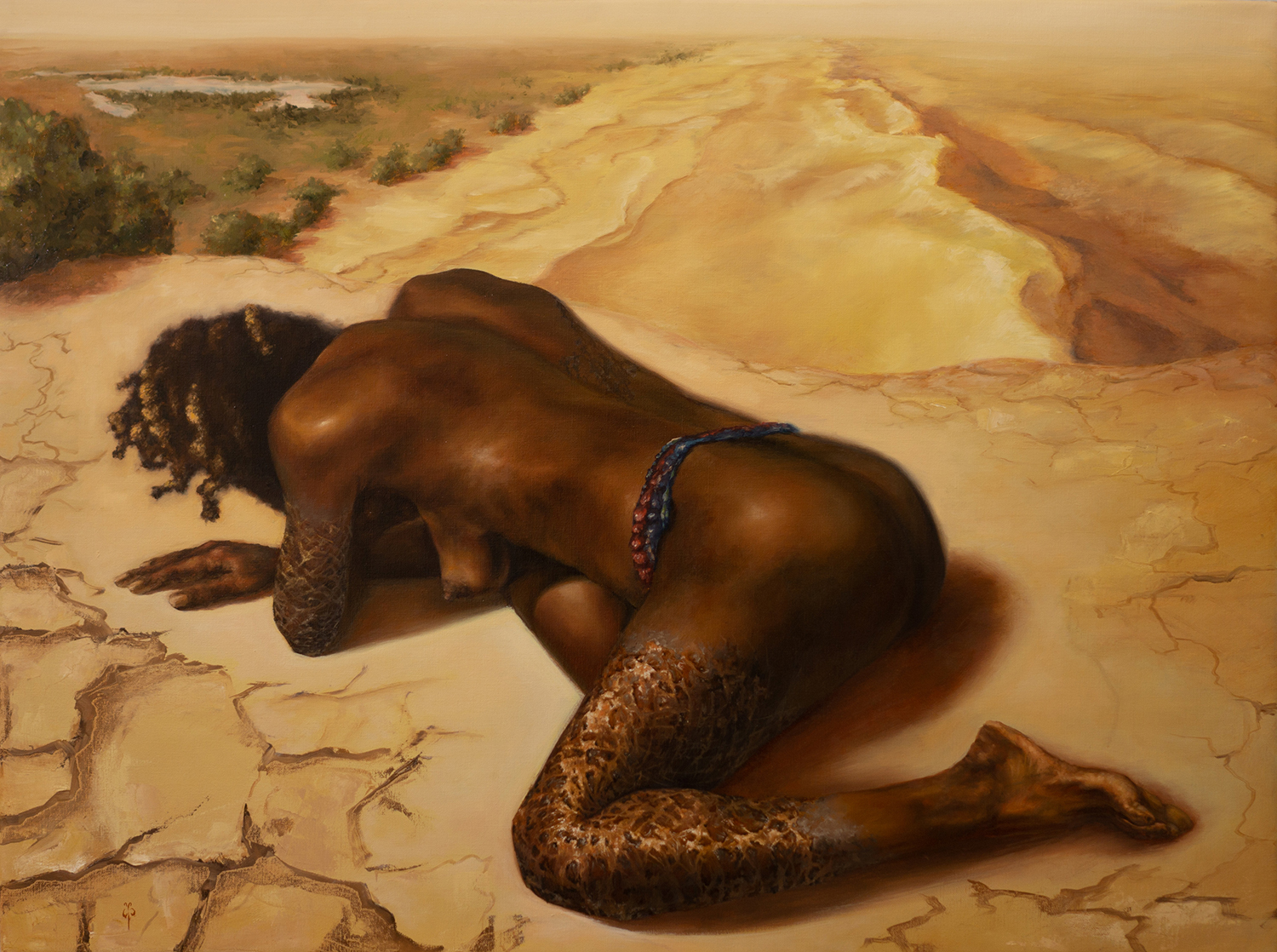
“Knowing there are people trying to do things—even small things on a local level—gives me hope, because that can snowball.” Each painting points to “clear power structures and industrial actors. There is power and policy behind all of it.” But far from spreading doom and gloom, Bartholomew wants to draw attention to the different aspects of climate change where there are causes and effects we can work together to change.
by Katherine Boyce, photos courtesy of Brooke Bartholomew
Two Degrees Warmer will be on display at Holland Arts East Gallery, 639 22nd Ave NE, on July 8th & 9th from 11am to 6pm. Find out more at https://brookebartdoesart.com/exhibits
